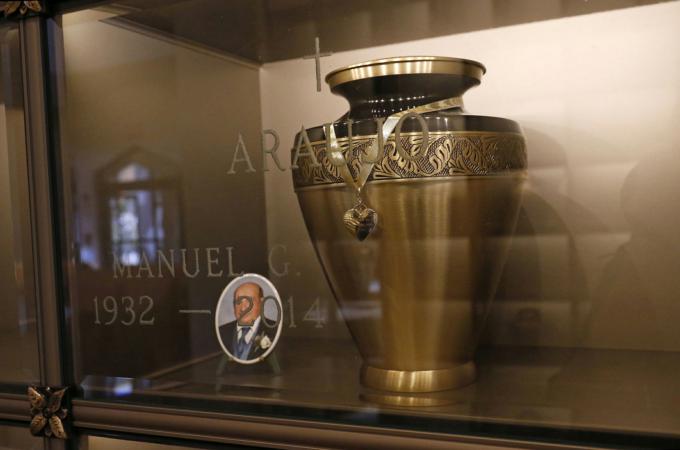Scattering ashes
Q. When I die, I would like to be cremated and have my ashes scattered in a place of peace and beauty that I have already chosen. However, when I have asked a couple of priests, they say that I can be cremated but that my ashes must be in an urn and either buried or interred in an above-ground mausoleum.
The reason they have given is that my body/ashes must be together at the end of the world. So does that mean that people who have died in explosions and have had their bodies completely incinerated cannot be reunited with Christ? (Even if embalmed, our bodies will still rot away; will bodies actually be in heaven, or only our spirits/souls?) (Minneapolis)
A. It is true, as you learned, that in the view of the Catholic Church, cremains should be buried or interred in a sacred, church-approved place. But the reason is not so much, as you suggest, that "the ashes must be together at the end of the world."
Instead, it results from the church's belief that the human body is an essential part of a person's identity and that cremains should therefore be treated with the same respect as a human corpse.
Additionally, the church prefers that the cremains be accessible to the public so that the Christian community can come and remember the dead in prayer. And so, in 2016 when the Vatican issued guidelines for cremation, it clarified that the cremains should not be scattered, divided up, placed in lockets or kept at home.
And yes, it is an essential Catholic doctrine (see Catechism of the Catholic Church, No. 1017) that in heaven our bodies will be reunited with our souls -- although transformed into a glorified state, freed from any suffering or pain. Exactly how that will happen we do not know, although I feel confident that God can figure it out -- even for those whose bodies have been "completely incinerated" at death.
Q. I am 80 years old and would like to feel like a real and responsible Catholic again, but here is my problem. In the Bible, it says that we should love God with all our hearts and minds. I believe in God and know that he is there, but I just do not experience that "loving," "feel good" emotion.
I have a huge guilt complex about this, because it suggests that I just take God for granted. I can talk and pray to God, but it seems so one-sided. When I was a boy, I used to stop in church for a visit and just sit and marvel that I was in God's house. But now I leave Mass feeling empty, except for knowing that I have met my Sunday obligation.
Over the years, I have spoken with four different Catholic priests to discuss this, and it was a complete waste of time. All I came away with was that I needed to have blind faith. I do have faith, but that does not remove my guilt for not properly loving God. (Terre Haute, Indiana)
A. Relax! The fact that you do not feel God's closeness does not mean that you don't love him. I refer you to a book called "Mother Teresa: Come Be My Light," the record of Mother Teresa's correspondence with her spiritual director.
Mother Teresa, who devoted her life to caring for the poor in the streets of Kolkata, was canonized a saint in 2016. Yet this book reveals that she endured many years of an intense spiritual dryness, feeling abandoned by God. It is a story told by many saints.
"My own soul remains in deep darkness and desolation," noted an anguished Mother Teresa. Nevertheless, she said, "I don't complain -- let him do with me whatever he wants."
I'm sure that you appreciate that the Lord has given you the gift of life, along with many blessings over your 80 years. Your presence at Mass -- the great act of Christian thanksgiving -- demonstrates that gratitude.
I will pray that God will grant you the gift of inner peace, as well as a sense of his nearness. But meanwhile, don't worry about how you feel; it's much more important how you think and act.
- Father Kenneth Doyle is a columnist for Catholic News Service



















